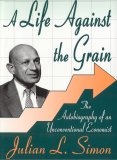
Having discovered its prowess as an outsourcer of labor, the Philippines is now pursuing the opportunity with fervor. Whereas the US has spent decades bemoaning the export of its jobs (to Mexico, to China), the Philippine government revels in the export of its people. Using technology to stay involved in family life back home, Filipino global commuters constitute one of the biggest sources of stability for the economy of a country perennially known as the Sick Man of Asia. Remittances, the money they electronically send back to their families, account for 8.2 percent of the nation's gross national product, stabilizing its peso, improving foreign currency reserves, shoring up consumption, and making more than a dent in the unemployment rate (now 11.1 percent). Last year, overseas Filipino workers sent home $6.2 billion. Indians sent home twice the amount - with 13 times the general population.Found via Semi-Daily Journal.
Someone selling a stock in huge quantities because they know something will happen soon that will lower the stockís value helps spread the knowledge that the price ought to be dropping. Such actions help insure that stock prices do reflect a more accurate assessment of all the relevant facts. Thatís good in the long run for everyone in the stock market.That's why Mr. Doherty says "Free Samuel Waksal" and that "insider trading" should not be a crime.
Behind much of the opposition to the death penalty is the widespread assumption that executions do not deter murderers. This notion became liberal dogma long ago, based on an unbelievably crude study which measured capital punishment by words in the statute books, rather than by actual executions. A later and more sophisticated statistical study, by Isaac Ehrlich of the University of Chicago, found several murders deterred per execution.
The whole liberal establishment in academia came down on Professor Ehrlich's study, applying standards that they never applied to the previous study which told them what they wanted to hear.
When the G-8 leaders meet this week, cowering in a Canadian mountain resort beyond the reach of organized anarchists, here's a way for them to bolster terror-infested third world countries like Pakistan.And it just gets better and better after that. Kristof rightly recognizes that people in third world countries are stuck with a set of crummy choices and that anti-globalization loonies on the left just make it worse by trying to take away the best of those choices: working in a factory.
They should start an international campaign to promote imports from sweatshops, perhaps with bold labels depicting an unrecognizable flag and the words "Proudly Made in a Third World Sweatshop!"
I take it as axiomatic that the right to survive trumps every other right, since none of your rights means anything if you do not survive. I also take it as axiomatic that process costs are not always negligible, and are particularly likely to be very high in a war for survival.Sowell also says "Regardless of what principles we believe in, we can only make our choices among alternatives actually available".
Update: Here's a great example of how Krugman is able to blame all bad things on the administration: He says "Amtrak has been pushed to the edge of shutdown, because it couldn't get the administration's attention." It's not clear this is a bad thing. Why should Amtrak be saved? It's just another example of corporate welfare that in other cases Krugman would be condemning, but if he can claim that its failure is due to Dubya, then he has no problem implying that it should be saved. The sad news is, as reported Monday, that the administration WILL step in to save Amtrak with yet another bail out.
7:21 AM
Sunday, June 23, 2002
"Hoping That the Flaws in the American Economy Throw a Lot of People Out of Work" is Brad DeLong's fine critique of a terrible article by William Greider in The Nation, "Bad for business". One only needs to read Greider's Secrets of the Temple: How the Federal Reserve Runs the Country, to see that he is capable of good output, but contrast that with the more recent, and flawed to the point of worthlessness, One World, Ready or Not: The Manic Logic of Global Capitalism. As Paul Krugman points out in his review of the latter, "the main lesson one really learns from [this book] is how easy it is for an intelligent, earnest man to trip over his own intellectual shoelaces".
10:43 AM